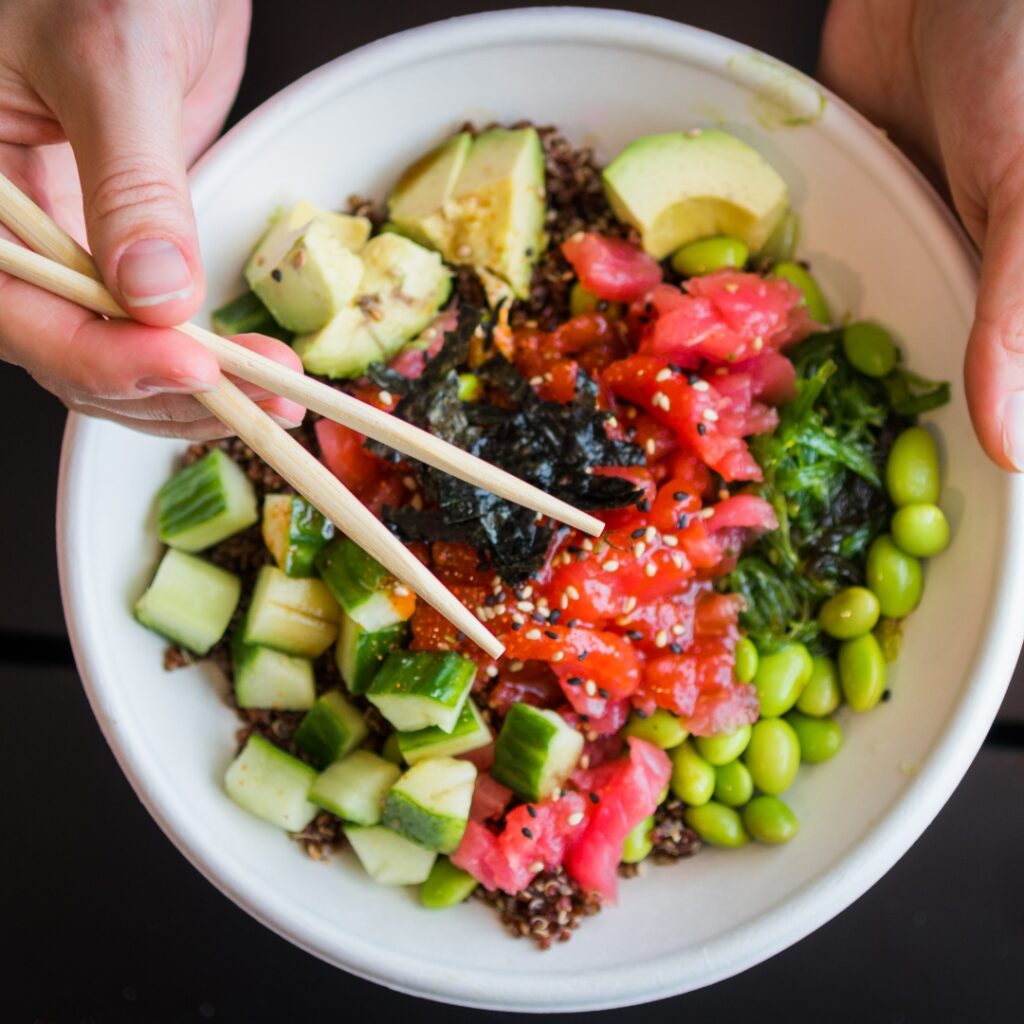In the dynamic world of fitness and wellness, people are increasingly adopting plant-based lifestyles to enhance health and athletic performance. Additionally, plant-based performance has become a focal point for those opting for vegan or vegetarian paths, challenging traditional ideas about protein and diet. This shift not only aligns with ethical and environmental considerations but also brings both opportunities and challenges for fitness enthusiasts.
In this article, we’ll explore the intricacies of navigating a vegan or vegetarian fitness lifestyle. We’ll delve into the science, nutrition, and practical strategies. That will empower individuals to excel in athletic pursuits while adhering to plant-based principles. Successfully transitioning to plant-powered regimens demands a deep understanding of key performance factors. We’ll unravel these aspects to guide you on your journey toward plant-based vitality.

Benefits of a Plant-Based Diet for Fitness
The passage highlights the benefits of a plant-based diet on fitness and athletic performance. It emphasizes advantages like reduced inflammation, improved nutrient density, enhanced endurance, and weight management. Let’s break down the elements to ensure a plagiarism-free understanding:
Reduced Inflammation
The passage emphasizes that plant-based diets are rich in antioxidants and anti-inflammatory compounds, aiding in the reduction of muscle soreness and promoting efficient post-exercise recovery.
Improved Nutrient Density
It underscores that plant-based diets are typically high in fiber, vitamins, minerals, and phytonutrients, playing a crucial role in overall health and optimizing athletic performance.
Enhanced Endurance
The passage highlights the advantages of plant-based diets for endurance athletes. These diets offer abundant carbohydrate-rich foods. Examples as fruits, vegetables, and whole grains, which serve as the primary fuel source for endurance activities.
Weight Management
Plant-based diets inherently support weight management and healthy body composition with lower calorie and fat content.
The conclusion asserts that adopting a plant-based nutrition approach aligns with ethical, and environmental considerations, and strategically enhances fitness and athletic performance.

Nutritional Considerations for Plant-Based Athletes
Achieving optimal nutrition as a plant-based athlete involves careful consideration of key factors. While the advantages of plant-based diets are undeniable, it’s crucial to be attentive to specific nutritional aspects to ensure your dietary choices meet your performance needs:
Protein
Plant-based proteins, often less bioavailable than their animal counterparts, necessitate a diverse selection of sources. Integrate legumes, nuts, seeds, and soy products into your diet to ensure an adequate protein intake for muscle support and recovery.
Iron
Essential for oxygen transport and energy production, iron is a critical nutrient. Incorporate iron-rich plant sources such as leafy green vegetables, legumes, and fortified cereals to maintain optimal levels and support your overall athletic performance.
Calcium
Crucial for bone health and muscle function, calcium is another key consideration. Source calcium from plant-based options like leafy green vegetables, fortified plant-based milk alternatives, and calcium-set tofu to ensure robust bone structure and muscle integrity.
Vitamin B12
Vital for nerve function and red blood cell formation, Vitamin B12 is not naturally present in plant foods. Recognizing this, consider supplementation to meet your body’s requirements for optimal performance and overall well-being.
Navigating the nuances of a plant-based diet for athletic pursuits involves strategic planning to address these nutritional considerations. By incorporating a variety of nutrient-dense plant foods, you can ensure that your dietary choices align with your performance goals while maintaining the principles of a plant-based lifestyle.

Tips for Success with a Plant-Based Fitness Lifestyle
Embarking on a plant-based fitness lifestyle requires strategic planning and informed choices to guarantee success. Here are key tips to optimize your journey:
Meal Planning
The term “meal planning” refers to the deliberate and thoughtful process of deciding in advance what and when you will eat. It involves considering nutritional needs, dietary goals, and the timing of meals.
Anticipate Success: The phrase “anticipate success” implies that by engaging in meal planning, you are taking a proactive step toward achieving your desired outcomes. It suggests a positive mindset and a belief that careful planning contributes to successful outcomes.
Planning Meals in Advance: The statement recommends planning meals ahead of time. Indicating that the process is not spontaneous but intentional. This allows for a systematic and strategic approach to dietary choices.
Well-Rounded Intake: The notion of a “well-rounded intake” implies that the planned meals are diverse and include a variety of nutrients necessary for overall health. This can include a balance of proteins, carbohydrates, fats, vitamins, and minerals.
Nutrient-Dense Foods: The term “nutrient-dense foods” refers to foods that provide a high concentration of essential nutrients relative to their calorie content. In the context of meal planning, it suggests selecting foods that offer maximum nutritional benefit.
Proactive Approach: Describing meal planning as a “proactive approach” highlights the idea that individuals are taking control of their nutrition with foresight and intentionality. This contrasts with a reactive approach where dietary choices may be made impulsively.
Meeting Nutritional Needs: By planning meals, individuals ensure they meet nutritional needs, focusing on a balanced and well-rounded diet.
Maintaining Energy Levels: Meal planning benefits include sustaining consistent energy levels during fitness pursuits, essential for optimizing performance and sustaining physical activity.
Supplementation
Collaborate with a registered dietitian or healthcare professional to assess your unique nutritional requirements. Personalized advice can guide you on whether supplementation is necessary, ensuring you address any potential gaps in your plant-based diet effectively.
Education
Equip yourself with knowledge about plant-based nutrition. Resources abound to help you make informed food choices. And it will empower you to meet your fitness goals while adhering to a plant-based lifestyle. Stay informed about essential nutrients and their plant sources to make conscious dietary decisions.
Support: Foster a sense of community by joining a plant-based fitness group or connecting with like-minded individuals. Building a support network provides encouragement, shared experiences, and valuable insights. By enhancing your journey towards a plant-based lifestyle and fitness success.
By incorporating these tips into your plant-based fitness lifestyle, you can create a foundation for sustained success. Whether through meticulous meal planning, informed education, or a supportive community, these strategies will empower you to thrive in your plant-powered journey toward optimal health and fitness.
Conclusion
In conclusion, embracing a plant-based diet emerges as a viable strategy to fuel your fitness journey and achieve optimal performance. Meticulous meal planning, prioritizing nutrients, and seeking support enables individuals to navigate and thrive in a plant-based fitness lifestyle. This approach aligns with personal health, well-being, and sustainable and ethical considerations, making it a holistic choice for excelling in fitness endeavors.

